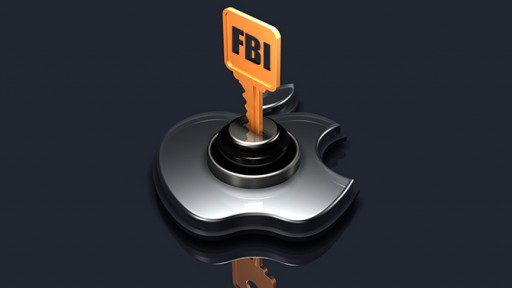In January of this year, President Obama’s top intelligence advisers met with Apple’s CEO, Tim Cook and other technology leaders to discuss their long-standing disagreement over the encryption safeguards built into their devices. The Federal Bureau of Investigation requested Apple help unlock an iPhone used by Syed Rizwan Farook, one of the San Bernardino murderers who killed 14 people on December 2, 2015. Apple refused. On February 16, 2016, the United States District Court for the District of California issued an order compelling Apple to assist the FBI by enabling the search of the Farook’s iPhone. Tim Cook called the FBI’s request “chilling” and a “dangerous precedent” to set. The FBI requested that Apple create and digitally sign a special version of iOS, which would be modified in three ways, as specified on page 8 of the court order:
- iOS can be set to erase its keys after 10 incorrect passcode guesses. The FBI wants software with this feature disabled.
- iOS imposes increasingly long delays after consecutive incorrect passcode guesses to slow down guessing (this is commonly called rate limiting). The FBI wants software that accepts an arbitrary number of guesses with no delays.
- iOS requires individual passcodes be typed in by hand. The FBI wants a means to electronically enter passcodes, allowing it to automatically try every possible code quickly.
At the time, Apple worried the FBI’s application of the All Writs Act of 1798 would allow the government to force Apple into taking further steps, and used the example of surveillance software that could intercept and capture all data on an iPhone.
The All Writs Act is a 227 year old, general-purpose law allowing a court to require third parties’ assistance to execute a prior order of the court when “necessary or appropriate.” Many feared that should the U.S. government prevail in this case, it could be used to justify law enforcement efforts to get around encryption technologies in other investigations far removed from national security threats. Additionally, some feared the government could ask to use this power proactively, before a suspected terrorist attack. Is this really a possibility? Perhaps, but not certainly.
Ultimately, this case pitted a strong, governmental interest in ensuring its national security against an individual’s fundamental right to privacy. Many continue to wonder whether the U.S. can claim national security concerns justify the hacking into all iPhones. However, two legal roadblocks prevent such an occurrence.
First, in the U.S., the Fourth Amendment grants a measure of privacy for “persons, houses, papers, and effects” from “unreasonable searches and seizures” while requiring that warrants be issued based only on probable cause. Second, the international human right to privacy, arguably a customary norm of international law, as codified in the International Covenant on Civil and Political Rights (ICCPR) and the European Convention on Human Rights (ECHR), place limits on a State’s ability to interfere with the right to privacy.
But the courts weren’t faced with making this determination. On March 28, 2016, the Justice Department withdrew its legal effort to compel Apple to assist the U.S. government claiming it had unlocked the iphone without assistance from the tech company. Despite the U.S. government’s successful iphone hack, on April 8, 2016, the Justice Department said it would continue to try to force the tech company to help in criminal probes based on the All Writs Act justification.
Interference into an individuals’ right to privacy is illegal where it is arbitrary and not prescribed by law. As a threshold matter, the invasion must be prescribed by domestic law and have certain clear and precise safeguards. Second, and probably the limiting factor, is that the interference must not be arbitrary. The European Court of Human Rights’ jurisprudence on the subject has allowed a claim of national security threats to supersede an individuals right to privacy. However, these national security threats must be concrete, and the interference may not be “blanket and indiscriminate.” Thus, a State would not be justified in the surveillance of any and all phones absent a clearly defined threat to such State.
In sum, international law already accounts for the fear’s individuals express over a ruling in favor of the government. Should Apple fail in its “fight the good fight” attempt, individuals need not worry about the government being enabled.


